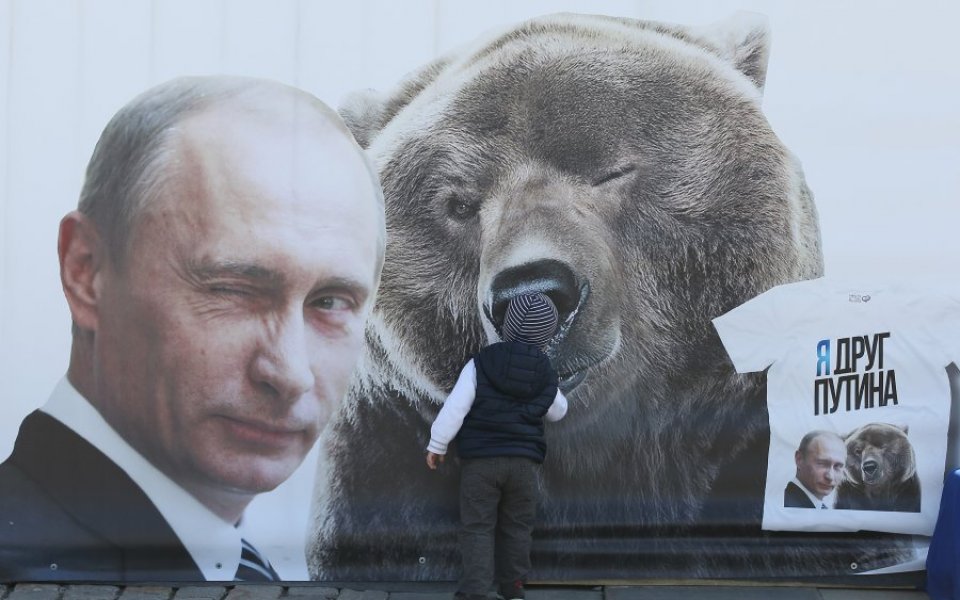Putin is playing bad cards well in Syria and Ukraine – but his days are numbered

Given the hustle and bustle of modern life, a primary problem for political risk analysts is that they have far too much information rather than too little.
I could literally spend the whole day reading other people’s articles, and never make a dent in a day’s worth of foreign policy analysis around the world. Given this tidal wave of data, it is easy to get lost in the dots – carried away by any day’s given news – and to miss the bigger picture.
Analysts miss the simple truth that a rare few foreign policy protagonists actually know what they are doing, set out a strategy to achieve those ends, and opportunistically use tactics as they come to hand to further the overall goal.
Read more: Putin might be a threat to the West – but Isis isn't any less so
These chess players, while uncommon, are often the most successful foreign policy operators. However, it is even more often the case that their measured, rational plans are entirely missed by a commentariat with the standard attention span of a fruit fly.
Our favourite Bond villain, Vladimir Putin, is one such actor on the world stage. Given his deliberate chess playing acumen, the only way to make sense of Russian foreign policy under his methodical rule is to go back to first principles and see what Putin is truly about.
In a general sense, the Russian President is just your standard, garden-variety Gaullist, determined above all to restore Russian national pride and global status after a perceived period of humiliation following Moscow’s defeat in the Cold War. There is a reason Putin has a giant picture of Peter the Great in his personal study; in line with centuries of Russian political culture, the President sees himself as the tough, reformist “Good Tsar”, restoring order and dignity to his country after one of its disastrous bouts of chaos under the weak previous Tsar, the shambolic alcoholic Boris Yeltsin.
That Putin has succeeded in restoring Russian pride cannot be in doubt; his approval ratings – despite the economic free-fall the country presently finds itself in – soar in the 80 per cent range, the envy of any western leader. While it is unpalatable for western critics of the Kremlin to admit it, Putin has remained extremely popular for an extremely long time. This link to his people through the Good Tsar narrative explains this striking feature of his rule.
However, as was true for Charles De Gaulle, it is important not to make too much of what Putin has concretely achieved. In the cases of both its intervention in Ukraine and Syria, the Kremlin has managed to play bad cards very well, but the cards remain poor indeed. Putin did stop Kiev from definitively joining the western sphere of influence following the collapse of his toady, Viktor Yanukovych, but a Ukraine in chaos is the strategic second best option to a secure Ukraine firmly under Russian dominance.
Likewise, Assad’s Syria is literally the only Middle Eastern ally Putin has left in the entire region. As was true with Ukraine, Syria matters strategically to Russia ever so much more than it does to the West, precisely because these two shattered countries are about all that remains of the Kremlin’s former global posture. Putin has indeed run supple rings tactically around the West in both cases, but never forget that the Kremlin’s desperation in coming to its allies’ rescue in Ukraine and Syria belies a Moscow acutely aware that, as Janis Joplin so memorably put it, “freedom’s just a word for nothin’ left to lose”.
For all that Putin, in true Gaullist fashion, has shored up Russia’s pretensions to remaining a regional power, in the medium term it is headed for a fall, despite all the balls Putin has managed to throw in the air. Russia’s economy remains a basket case, a one trick pony utterly dependent on plummeting energy prices, a fading gas station with nuclear weapons.
In 2015, Russia’s GDP shrank by nearly 4 per cent, while inflation galloped at 13 per cent. The central government’s budget for 2016 assumes an oil price of $50 a barrel, which will never happen. Unless spending habits change drastically, the budget deficit is likely to be in the danger zone of 7 per cent; Russia’s entire energy-driven growth model – so successful until recently under Putin – has just about run its course.
For beyond all the bells and whistles, the economic clock is ticking down on the grand chess player. For all his adroitness, Putin cannot indefinitely flout the iron laws of economics, any more than the USSR could. His days are numbered.